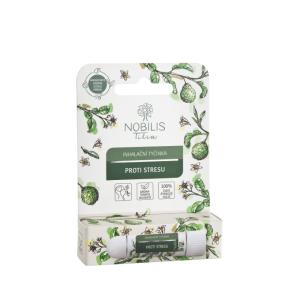
Symptoms of Clogged Intestines That Few Can Ignore

Clogged Intestines and Their Warning Signs
In a world where fast food, processed foods, and stress are everyday realities, it's no wonder that digestive and intestinal health issues are becoming increasingly common. Clogged intestines, a term we hear more and more often, may be the hidden culprit behind many health issues that we wouldn't initially suspect. But how can we tell that something is wrong? And why should we consider the intestines as the key to overall health?
How the Intestines Affect Overall Health
It is said that the intestines are our second brain. This comparison is no coincidence. The gut microbiome, a collection of trillions of bacteria and microorganisms living in our digestive tract, governs not only digestion but also immunity, mood, and energy levels. According to a study published in the journal Frontiers in Immunology, up to 70% of the immune system resides in the intestines. If the intestines aren't functioning properly, it can affect nearly every aspect of our health.
When the intestines become clogged, for example, due to a poor diet, lack of fiber, stress, or consumption of harmful substances, the microbiome balance is disrupted. The result is slowed digestion, inflammation, and the accumulation of toxins, which begin to manifest with various symptoms.
The Most Common Symptoms of Clogged Intestines
So how does the body signal that the intestines need help? Symptoms can be subtle and often mistaken for other problems, which is why they are frequently ignored.
1. Digestive Issues The most common and visible symptoms include bloating, gas, constipation, or diarrhea. If these problems recur or persist for a long time, it may be a sign that the intestines are not in optimal condition.
2. Chronic Fatigue Do you feel constantly exhausted even when you get enough sleep? Accumulated toxins in the intestines can burden the body and cause a persistent feeling of fatigue.
3. Deteriorated Skin Quality Acne, eczema, or generally unhealthy skin appearance can be related to internal inflammation and problematic digestion. Intestines that are unable to efficiently eliminate waste transfer toxins into the bloodstream, which is reflected in the skin.
4. Frequent Infections and Weakened Immunity If you often suffer from colds or other infections, the problem may not only be a weak immune system but also the poor condition of the intestinal flora.
5. Mood Changes and Mental Issues Depression, anxiety, or mood swings can surprisingly also be caused by clogged intestines. The intestines produce a large portion of serotonin – the happiness hormone.
A real-life example is the story of Mrs. Jana, who after years of struggling with migraines, fatigue, and skin problems discovered that her issues stemmed from poor digestion. After adjusting her diet, adding fiber, and regularly detoxifying her intestines, her health significantly improved, and the migraines became a thing of the past.
What Causes Intestinal Clogging
The lifestyle of today's human practically invites the intestines to become clogged and not function as they should. Just look at what most of us eat every day – lack of fiber is almost a given, yet it is crucial for regular bowel movements and overall cleansing of the digestive tract. Add to that the almost uncontrolled excessive consumption of sugar and processed foods, which are a breeding ground for the multiplication of harmful bacteria in the intestines – and that's a significant problem.
As if that weren't enough, most of us deal with stress daily, which disrupts the intestinal microbiome and affects the natural movements of the intestines, so digestion is far from running smoothly. And if we spend the whole day sitting at a computer and limit movement to a quick dash between the café and the car, a sedentary lifestyle further slows our digestion. Add excessive alcohol consumption and smoking, which weaken the intestinal lining, and we've set the stage for a range of digestive issues.
It's no wonder that digestive problems plague an increasing portion of the population. Yet, a few changes can allow the body to regenerate very quickly.
How to Restore Intestinal Health
The good news is that we can significantly help the state of our intestines – often without drastic measures. The key is to focus on gradual lifestyle changes that are sustainable in the long term.
A fiber-rich diet is fundamental. Fruits, vegetables, whole grains, seeds, and legumes promote healthy bowel movements and regular elimination. It's also worthwhile to include fermented foods like kefir, sauerkraut, or kimchi, which naturally restore the gut microbiota.
Exercise is another invaluable aid. Regular physical activity stimulates peristalsis and aids detoxification. It doesn't have to be marathon running – even brisk walking or yoga can wonderfully support digestion.
Hydration is often an overlooked factor. Water not only helps keep the digestive tract moving but also supports the flushing of toxins from the body. Experts recommend drinking at least 2 liters of water daily, ideally unsweetened and without added chemicals.
And what about mental well-being? Stress is literally poison for the intestines. Relaxation techniques such as meditation, breathing exercises, or spending time in nature can have a crucial impact on the state of the intestines.
Try our natural products
Dietary supplements, such as probiotics, prebiotics, or fiber supplements, can be a good aid, especially when a quicker remedy is needed. It is important, however, to choose quality products and consult an expert if in doubt.
Natural Signals You Should Listen To
Our body is constantly communicating with us, but we often don't listen. Signals like frequent fatigue, digestive problems, skin rashes, or frequent infections are not normal parts of life but warnings that the internal environment needs attention.
As Hippocrates, the father of modern medicine, said: “All diseases begin in the gut." Yet even today, more than 2000 years later, we often forget the basic rules of health.
Regular care for the intestines should therefore be a natural part of everyday life. It's not just about disease prevention but a path to better energy, joy in life, and longevity.
Nowadays, it's possible to find many natural products that support intestinal health – from herbal teas and fiber supplements to ecological solutions for digestive support. You can try, for example, purely natural detoxification courses that gently cleanse the intestines without drastic interventions.
Change begins with small steps. Just listen to your body, give it what it truly needs, and soon you may feel better than you ever imagined.


